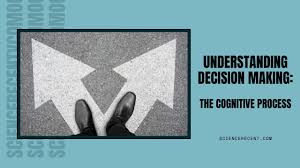Nine Tips for Making Impulsive Decisions
- Take a deep breath and count to 10 before making any decision.
- Think through the consequences of your actions before deciding.
- Ask yourself if you will regret this decision in the future.
- Talk to a trusted friend or family member about your options before deciding.
- Write down pros and cons of each option to help you make an informed decision.
- Avoid making decisions when you are feeling emotional or overwhelmed by stress or anxiety as this can cloud your judgement.
- Consider how much time and money is involved in each option before making a choice
- If it’s a big decision, take some time away from it and come back to it with fresh eyes later on
- Keep in mind that most impulsive decisions are not usually the best ones
Take a deep breath and count to 10 before making any decision.
Making decisions can be a tricky task, especially when we are feeling impulsive. When we are feeling overwhelmed or emotional, it is easy to make a decision without thinking it through. This is why it is important to take a deep breath and count to 10 before making any decision.
Taking a deep breath helps us to slow down and become aware of our emotions and thoughts. Counting to 10 gives us time to think things through and consider the consequences of our choices. It also allows us to gain perspective on the situation and make a more informed decision that we can be confident about.
By taking a deep breath and counting to 10 before making any decision, we can ensure that our decisions are well thought out and not rash or impulsive. This will help us make better decisions that will benefit ourselves in the long run.
Think through the consequences of your actions before deciding.
Making impulsive decisions can often lead to negative consequences, so it is important to think through the possible outcomes of any action before deciding.
Impulse decisions are usually based on emotion and can be difficult to control. They can be caused by stress, fear, or excitement, and often lead to regretful outcomes. To avoid making a decision that you may later regret, it is important to take some time to think about the potential consequences of your actions.
This does not need to be a long process; simply taking a few moments to consider the possible results of your decision can help you make an informed choice. Ask yourself questions such as “What will happen if I do this?” or “What could go wrong?” This will help you gain perspective and make an informed decision that is in line with your values and goals.
Thinking through the consequences of your actions before deciding can help you make decisions that are more likely to have positive outcomes. It also helps build self-discipline and prevents you from making impulsive choices that could have negative repercussions in the future.
Ask yourself if you will regret this decision in the future.
Making decisions can be difficult, especially when you are feeling impulsive. Before you make a decision, it is important to take a step back and ask yourself if you will regret this decision in the future.
It is easy to make decisions in the heat of the moment, but it is important to remember that these decisions can have long-term consequences. By taking a few moments to think about if you will regret this decision in the future, you can help ensure that your decisions are well thought out and beneficial for the long run.
Take some time to consider how this decision could affect your future. Ask yourself if it is something that could potentially cause harm or regret in the future. Thinking through these consequences can help you make better decisions and avoid potential pitfalls down the line.
Making impulsive decisions can lead to short-term satisfaction but long-term regret. Consider asking yourself if you will regret this decision in the future before making any major decisions, so that you can ensure your long-term happiness and success.
Talk to a trusted friend or family member about your options before deciding.
Making decisions can be difficult, especially when it comes to big life choices. It’s easy to act impulsively and make a snap decision without considering all of the consequences. However, if you take the time to talk through your options with a trusted friend or family member before making a choice, it can help you make better decisions.
Talking to someone else about your plans can provide an objective perspective on the situation and help you think of things that might not have occurred to you. A trusted friend or family member can also provide emotional support during this stressful time and help you feel more confident in your decision.
Additionally, having someone else who knows the details of your decision-making process is invaluable if something goes wrong down the line. You’ll have another person who understands what led up to your decision and can help you figure out how to move forward from there.
Overall, talking to a trusted friend or family member before making a big decision is an important step in ensuring that you make the best choice for yourself and your future.
Write down pros and cons of each option to help you make an informed decision.
Making decisions can be difficult and stressful, especially when it comes to big life choices. Impulsive decisions can often lead to regret and disappointment. To make an informed decision, it is important to weigh the pros and cons of each option. Writing down the pros and cons of each option can help you make a more informed decision.
Writing down pros and cons can help you organize your thoughts and identify which option is the most beneficial for you. When writing down the pros and cons, it is important to be as objective as possible. Consider both short-term and long-term consequences of each option before making a decision. This will help you avoid making an impulsive decision that could have negative consequences in the future.
Writing down pros and cons can also help you gain perspective on your situation by providing a visual representation of all of your options. This can be especially helpful if you are feeling overwhelmed or indecisive about a decision. By writing down all of your options, you will be able to clearly see which one is best for you in the long run.
Making an informed decision is essential for achieving success in any area of life. Writing down the pros and cons of each option before making a decision can help ensure that you make the best choice possible for yourself in any situation.
Avoid making decisions when you are feeling emotional or overwhelmed by stress or anxiety as this can cloud your judgement.
Making decisions can be hard, especially when we are feeling emotional or overwhelmed by stress or anxiety. In these moments, it is important to remember that our judgement can become clouded and the decisions we make may not be the best ones for us.
It is important to take a step back and give ourselves time to process our emotions before making any big decisions. Taking some deep breaths, meditating, or going for a walk can help clear our minds and give us a better perspective on the situation. We can also talk to a trusted friend or family member who can provide us with an objective opinion on the issue.
Making impulsive decisions can often lead to regret in the long run and it is important to take the time to think things through before making any final decisions. Taking a few moments to pause and reflect on the situation will help us make more informed decisions that are better for us in the long run.
Consider how much time and money is involved in each option before making a choice
Making decisions can be hard, and it’s easy to make an impulsive choice without considering all the options. Before you make any big decision, it’s important to consider how much time and money is involved in each option.
For example, if you’re deciding between two jobs, take into account how much time each job will take away from your family or other activities. Also think about how much money you’ll be making at each job and what kind of benefits you’ll receive. This will help you make an informed decision that won’t leave you regretting your choice later on.
Similarly, when shopping for a car or house, consider how much it will cost in the long run and if there are any hidden costs associated with the purchase. It may be tempting to buy the most expensive option but if it doesn’t fit into your budget or lifestyle then it’s probably not worth it in the end.
By taking the time to consider how much time and money is involved in each option before making a decision, you can avoid impulsive choices that could have major consequences down the line.
If it’s a big decision, take some time away from it and come back to it with fresh eyes later on
Making important decisions is a part of life. We all have to make decisions that will shape the course of our lives, from what job we take, to where we live and how we spend our time. However, it can be easy to make impulsive decisions without considering all the facts or taking the time to think things through.
If you find yourself in this situation, one tip to remember is to take some time away from the decision and come back to it later with fresh eyes. This can help you gain perspective and look at the decision from a different angle. This can help you decide if it is the right call or if more thought needs to be put into it.
Taking some time away from a big decision can also help you clear your head and get rid of any negative emotions that may be clouding your judgement. It also gives you an opportunity to talk things through with friends or family who may have different perspectives on the situation, which can help you gain clarity on what path is best for you.
Ultimately, taking some time away from a big decision can help ensure that you make an informed choice that will benefit your future in the long run.
Keep in mind that most impulsive decisions are not usually the best ones
Impulsive decisions are often made in the heat of the moment, without considering the consequences. While it can be tempting to make decisions quickly and without much thought, it’s important to remember that these decisions are often not the best ones.
Impulsive decisions can lead to regret or even disaster. For instance, if you make an impulsive decision to buy something expensive, you may end up with buyer’s remorse when you realize that you didn’t really need it or could have spent your money more wisely. Similarly, if you make an impulsive decision to quit your job without considering the long-term implications, you could find yourself in a difficult financial situation down the line.
The best way to avoid making bad impulsive decisions is to take a step back and think before acting. Slow down and consider all possible outcomes of your decision before taking action. It’s also helpful to talk to someone else who can provide a different perspective and help you make an informed decision.
By keeping in mind that most impulsive decisions are usually not the best ones, we can avoid making hasty choices that we may end up regretting later on.




